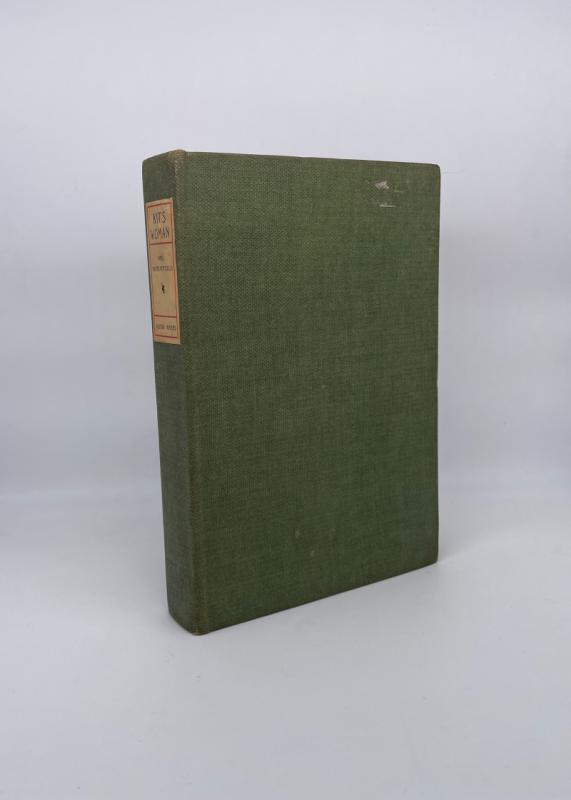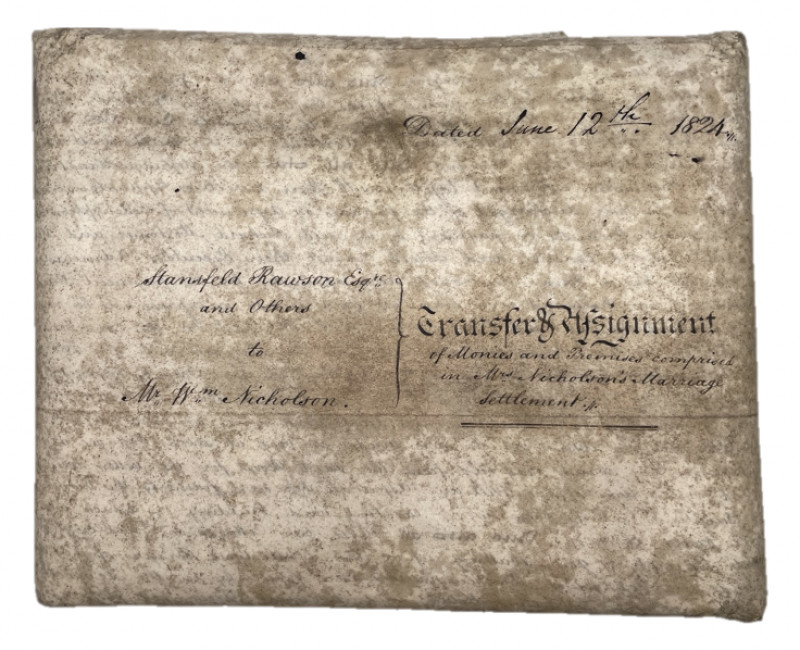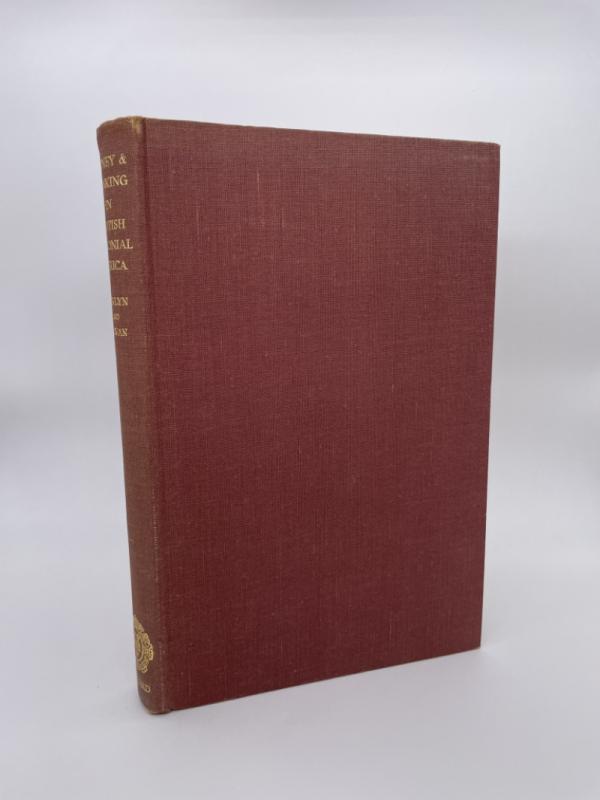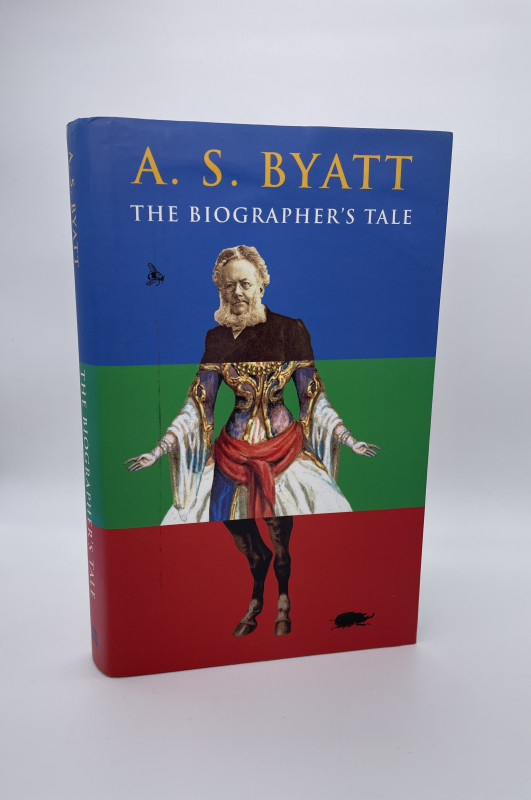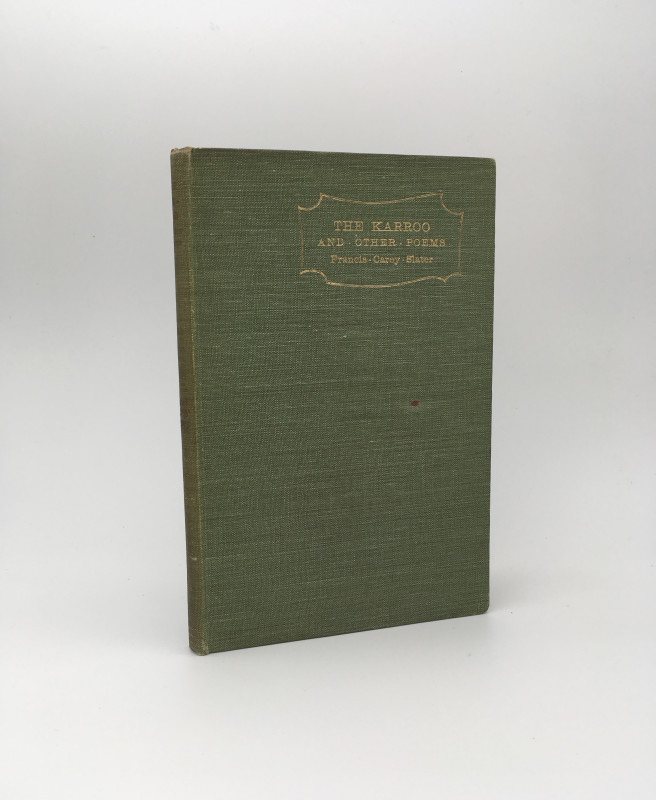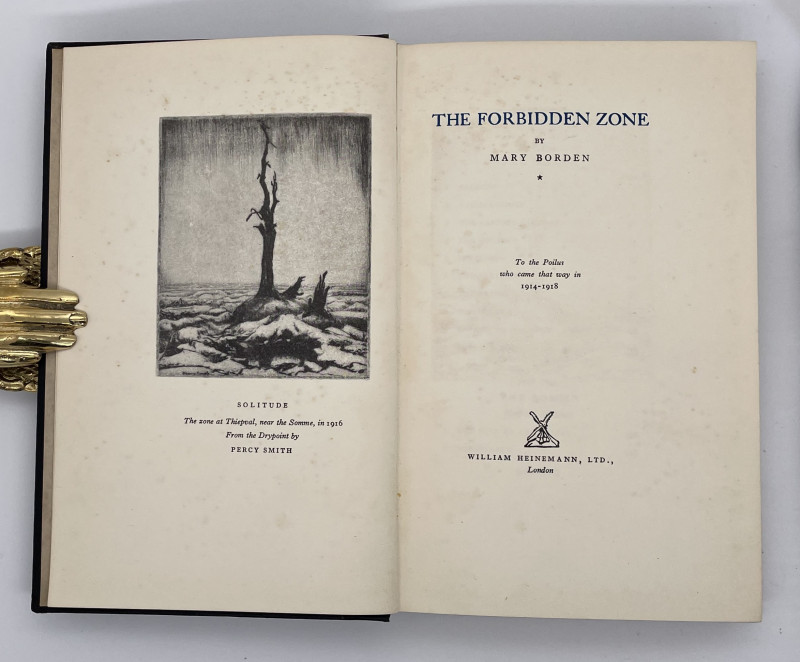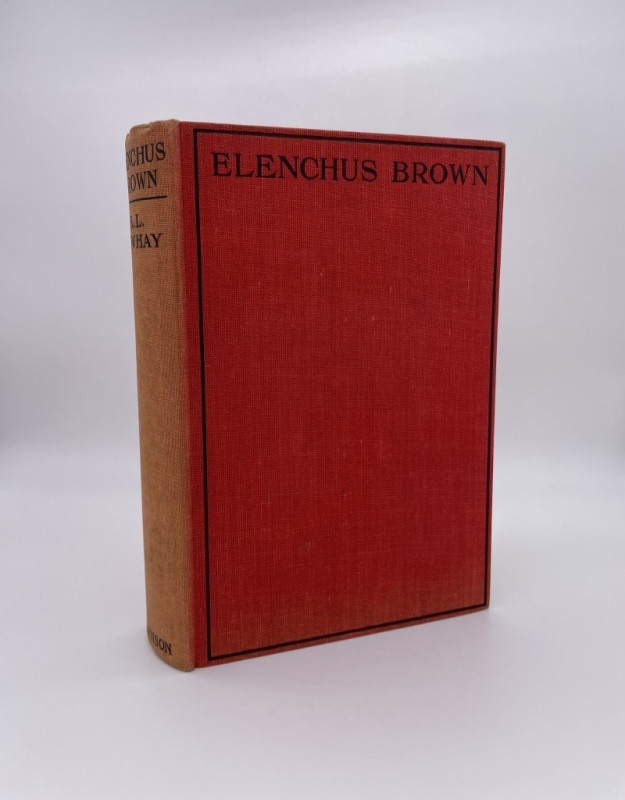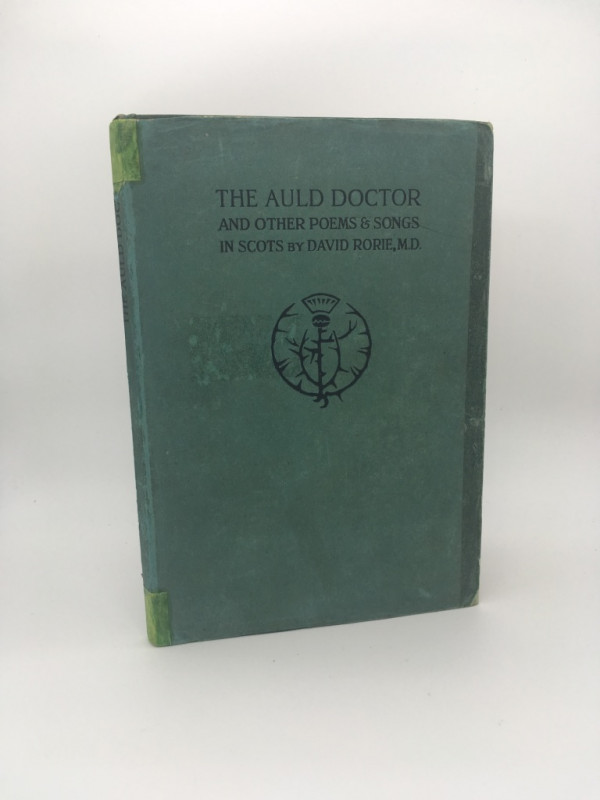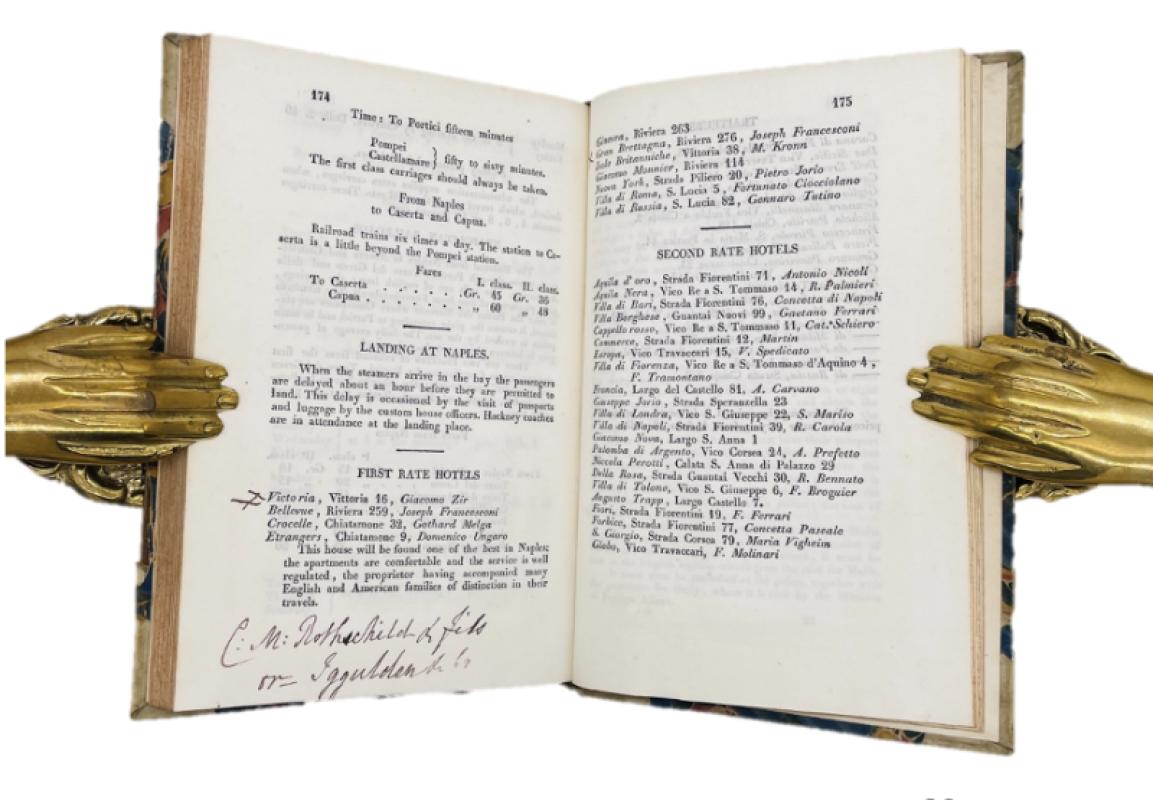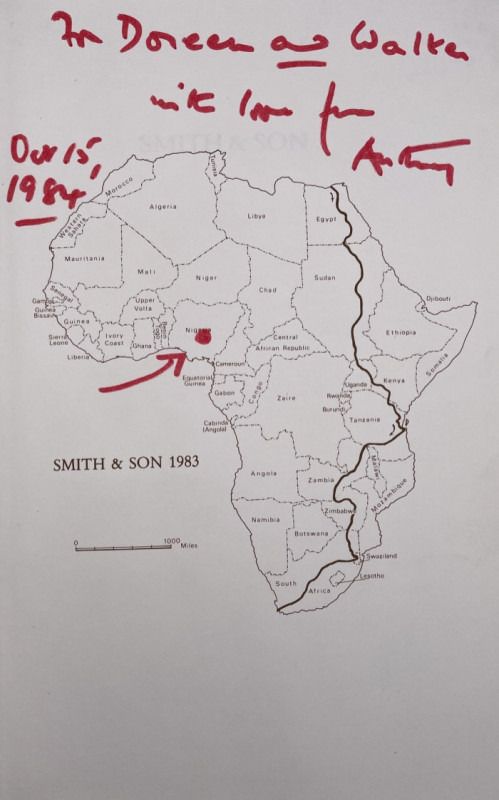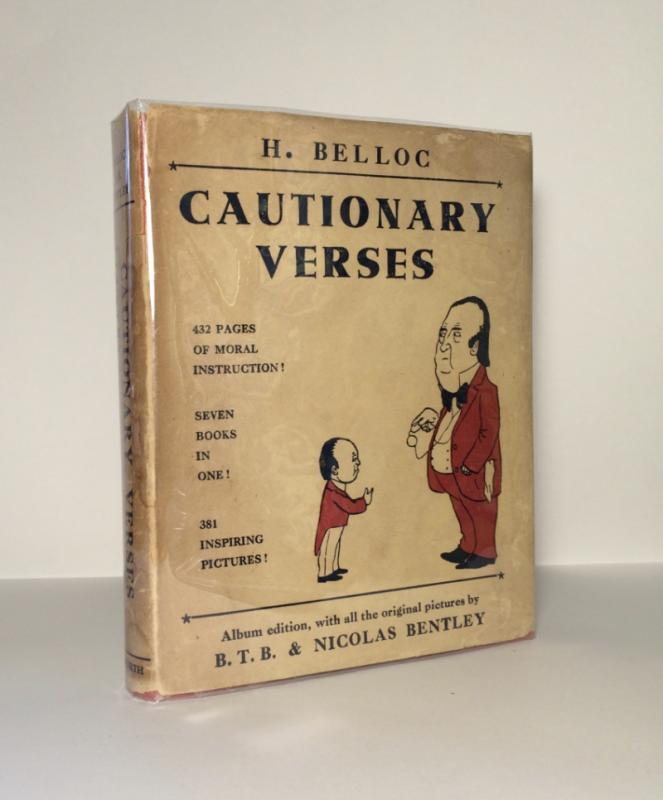Kit’s Woman: A Cornish Idyll.
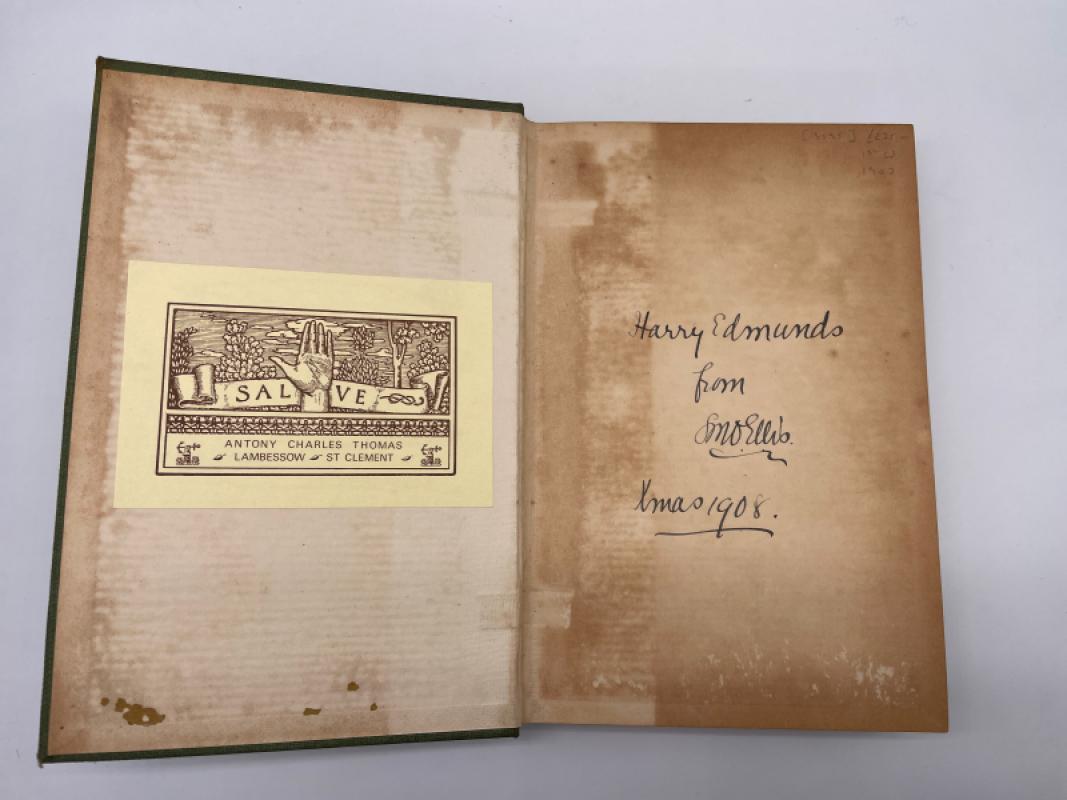
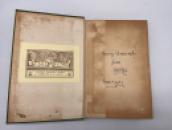

Book Description
FIRST EDITION, INSCRIBED BY AUTHOR. 8vo, title page printed in red and black. Original green linen, paper label to spine, lettered in black, ruled in red. Gently rubbed, traces of paper label and a few marks to upper board. Edges foxed and browned. Endpapers heavily and unevenly browned, a few chips (former insect damage?), Anthony Charles Thomas’ illustrated ex libris to front pastedown, inscribed by Ellis in sepia pen to ffep: “Harry Edmunds, from EMO Ellis, Xmas 1908”. Foxed, else, clean and tidy. JiscLHD locates four copies only (BL, Bodleian, CambridgeUL & NLS). Unusual.
Dealer Notes
A robust, inscribed copy of the “considerably revised and in parts rewritten” and re-titled 1907 edition of Edith Ellis’ most popular, protean and (inadvertently) persecuted novel about free love and female desire, set in Cornwall, with a pleasing Cornish provenance: from the collection of Charles Thomas (1928–2016), the eminent British historian and archaeologist, who was Professor of Cornish Studies at Exeter University.
In its original iteration as Seaweed (1898), Ellis’ first novel – her own “sex bomb,” as she discussed it in a letter to her friend Edward Carpenter – was accidentally swept up in the furore and subsequent censorship for obscenity of her husband Havelock Ellis’ Sexual Inversion (1897) and suppressed. The trial, and the potential for exposure as a queer woman, deeply affected Edith Ellis, who had provided ‘Case XXXVI.—Miss H., aged 30’ for her husband’s book.
Seaweed, and Kit’s Woman, are also significant for their subject matter, “which in many ways anticipates, and quite possibly inspired, D.H. Lawrence’s Lady Chatterley’s Lover, another famously censored and suppressed book” (Wallace, 2008). Following her 1907 revisions, which toned down Kit’s coarseness and removed a number of “erotically charged passages,” Ellis would revise it again for the American market as Steve’s Woman, “eliminating much of the Cornish dialect”; it also had a theatrical iteration as “a four-act play that received a special performance at the Court Theatre with Beryl Faber playing the leading role” (ibid). Finally, a popular, paperback edition of Kit’s Woman was published posthumously in 1916, possibly to help clear the debts Ellis had left.
Edith Mary Oldham Ellis (née Lees; 1861–1916), known professionally as Mrs Havelock Ellis, was an author and lecturer embedded in the overlapping progressive circles of fin de siècle England. A ‘New Woman’, she was a feminist and socialist, a one-time vegetarian and an advocate of eugenics, as well as, briefly, secretary of The Fellowship of the New Life (a precursor to the Fabian Society). Ellis was gregarious and well-networked across radical groups, publishing and lecturing in the UK and US, but with strong ties to Cornwall, where she farmed and made her home (the Ellises sought a different conjugal formation based on shared values and comradeship rather than sexual attraction; they had separate incomes and residences). Ellis bought a number of cottages at Carbis Bay and renovated them for tenants, alongside keeping animals on a free hold. As well as an invert, she described herself as: “a farmer, lodging-house keeper, novelist, dramatist, and observer.”
Jo-Ann Wallace (2008) ‘The Very First Lady Chatterley? Mrs. Havelock Ellis’s Seaweed,’ English Literature in Transition, 1880-1920, 51: 2, pp. 123-137.
In its original iteration as Seaweed (1898), Ellis’ first novel – her own “sex bomb,” as she discussed it in a letter to her friend Edward Carpenter – was accidentally swept up in the furore and subsequent censorship for obscenity of her husband Havelock Ellis’ Sexual Inversion (1897) and suppressed. The trial, and the potential for exposure as a queer woman, deeply affected Edith Ellis, who had provided ‘Case XXXVI.—Miss H., aged 30’ for her husband’s book.
Seaweed, and Kit’s Woman, are also significant for their subject matter, “which in many ways anticipates, and quite possibly inspired, D.H. Lawrence’s Lady Chatterley’s Lover, another famously censored and suppressed book” (Wallace, 2008). Following her 1907 revisions, which toned down Kit’s coarseness and removed a number of “erotically charged passages,” Ellis would revise it again for the American market as Steve’s Woman, “eliminating much of the Cornish dialect”; it also had a theatrical iteration as “a four-act play that received a special performance at the Court Theatre with Beryl Faber playing the leading role” (ibid). Finally, a popular, paperback edition of Kit’s Woman was published posthumously in 1916, possibly to help clear the debts Ellis had left.
Edith Mary Oldham Ellis (née Lees; 1861–1916), known professionally as Mrs Havelock Ellis, was an author and lecturer embedded in the overlapping progressive circles of fin de siècle England. A ‘New Woman’, she was a feminist and socialist, a one-time vegetarian and an advocate of eugenics, as well as, briefly, secretary of The Fellowship of the New Life (a precursor to the Fabian Society). Ellis was gregarious and well-networked across radical groups, publishing and lecturing in the UK and US, but with strong ties to Cornwall, where she farmed and made her home (the Ellises sought a different conjugal formation based on shared values and comradeship rather than sexual attraction; they had separate incomes and residences). Ellis bought a number of cottages at Carbis Bay and renovated them for tenants, alongside keeping animals on a free hold. As well as an invert, she described herself as: “a farmer, lodging-house keeper, novelist, dramatist, and observer.”
Jo-Ann Wallace (2008) ‘The Very First Lady Chatterley? Mrs. Havelock Ellis’s Seaweed,’ English Literature in Transition, 1880-1920, 51: 2, pp. 123-137.
Author
ELLIS, Mrs Havelock [née LEES, Edith Mary Oldham]; [THOMAS, Antony Charles].
Date
1907
Publisher
London: Alston Rivers, Ltd.
Condition
Good
Friends of the PBFA
For £10 get free entry to our fairs, updates from the PBFA and more.
Please email info@pbfa.org for more information
